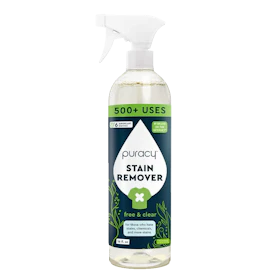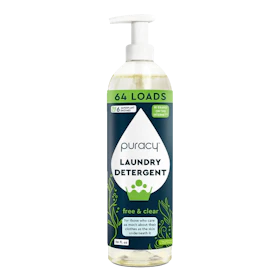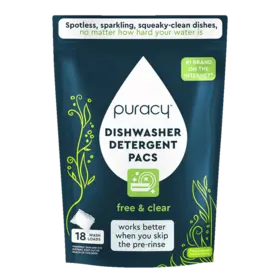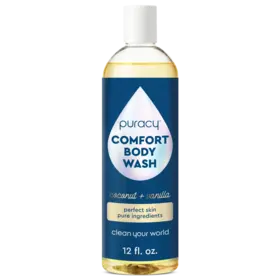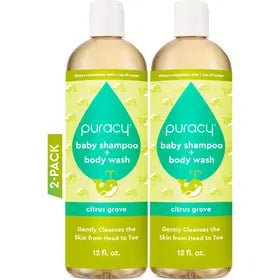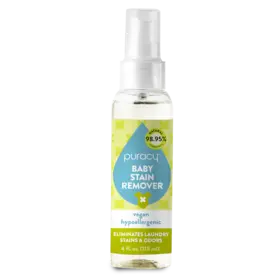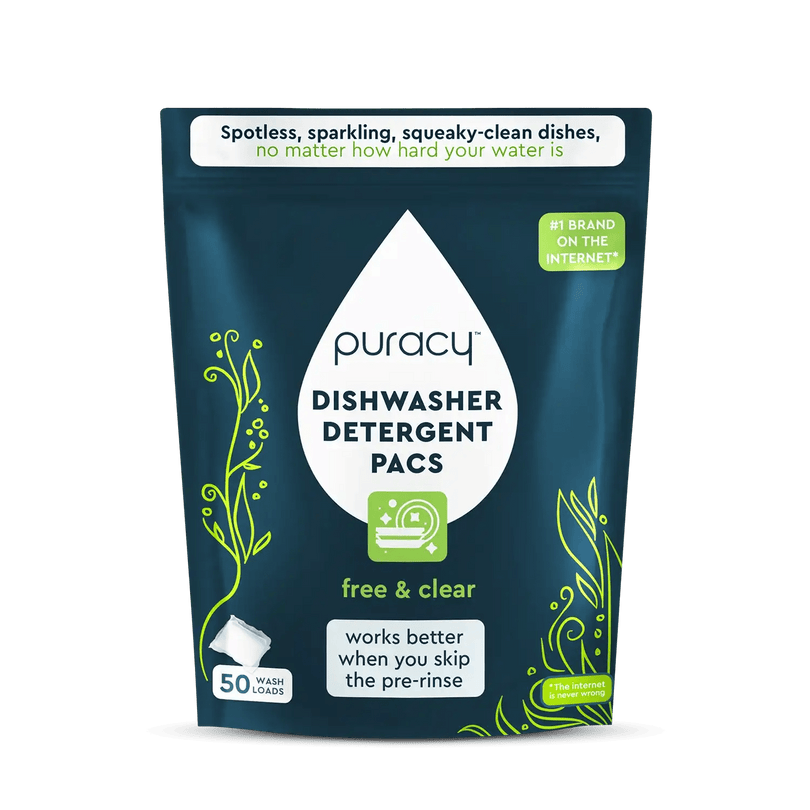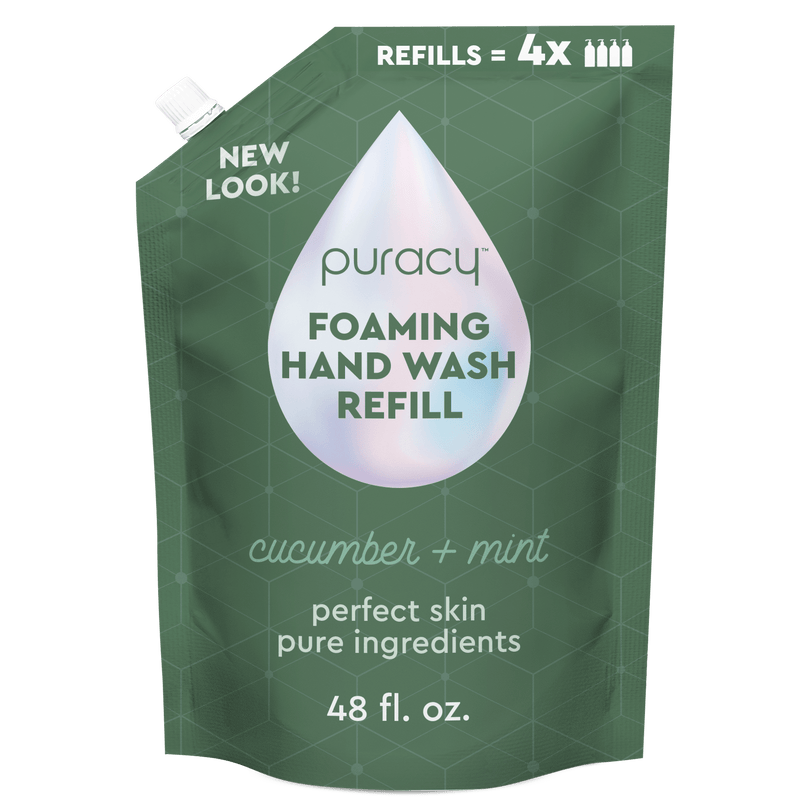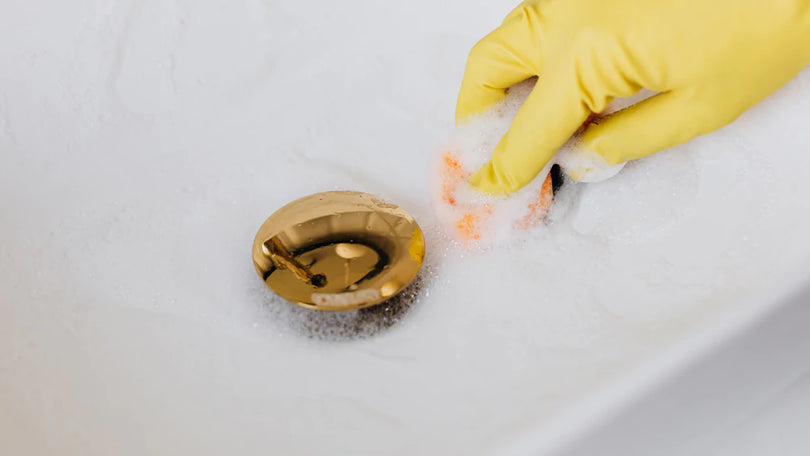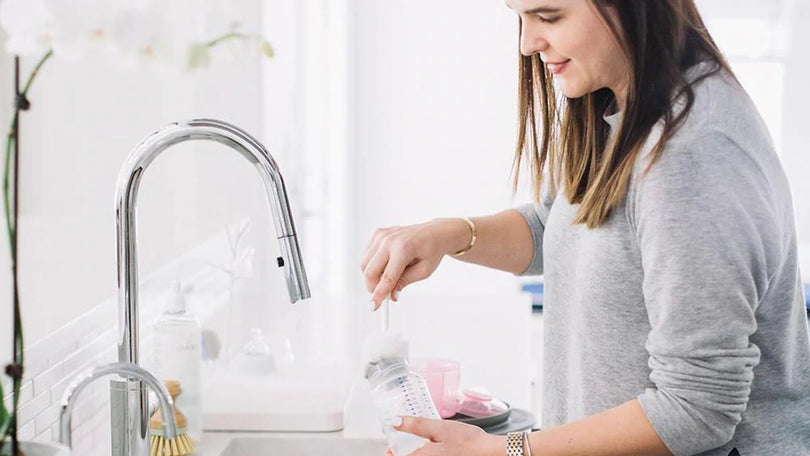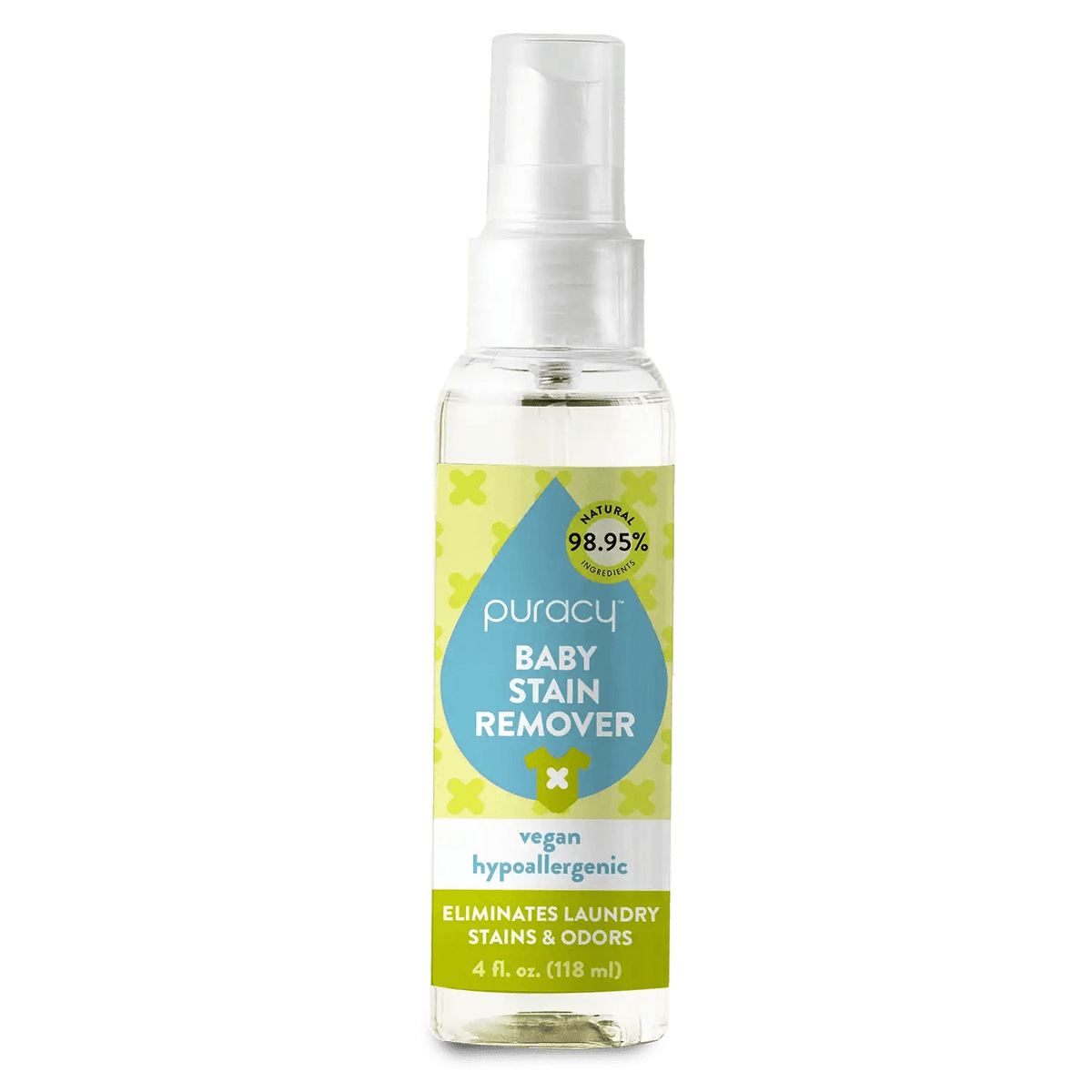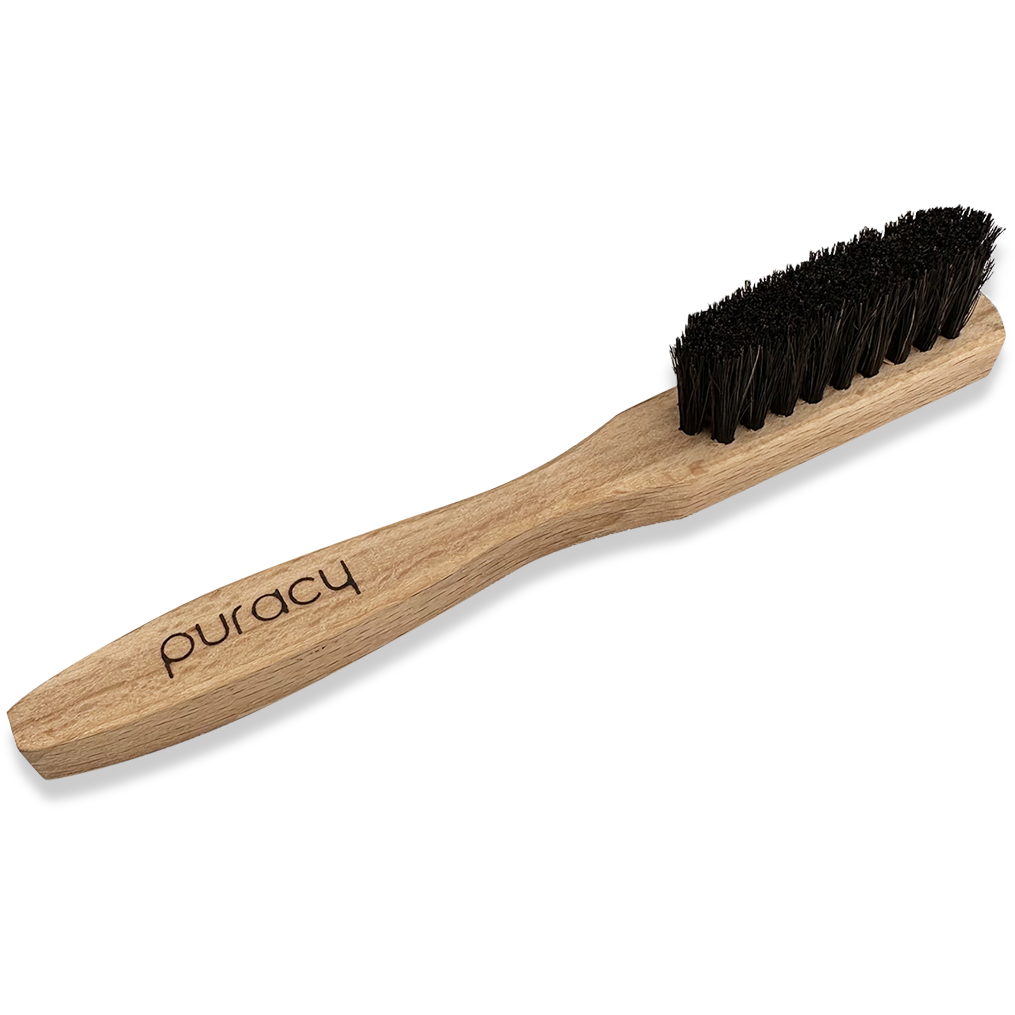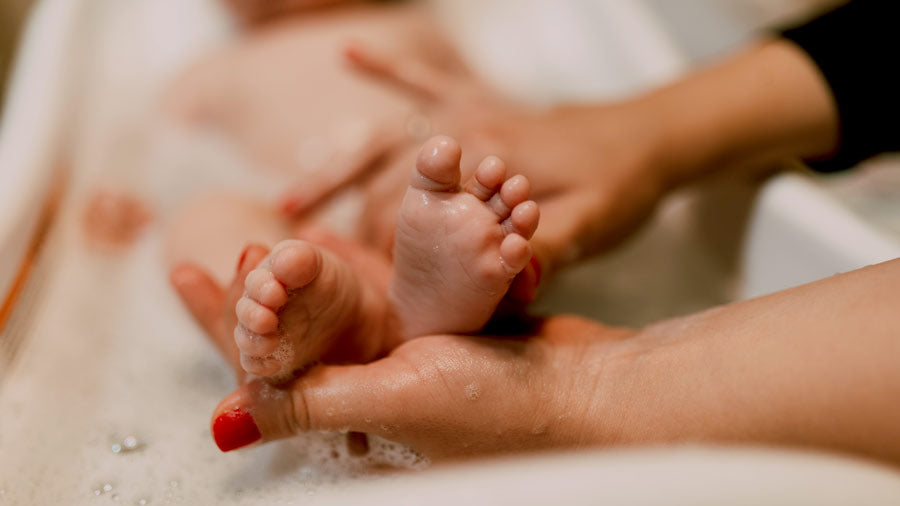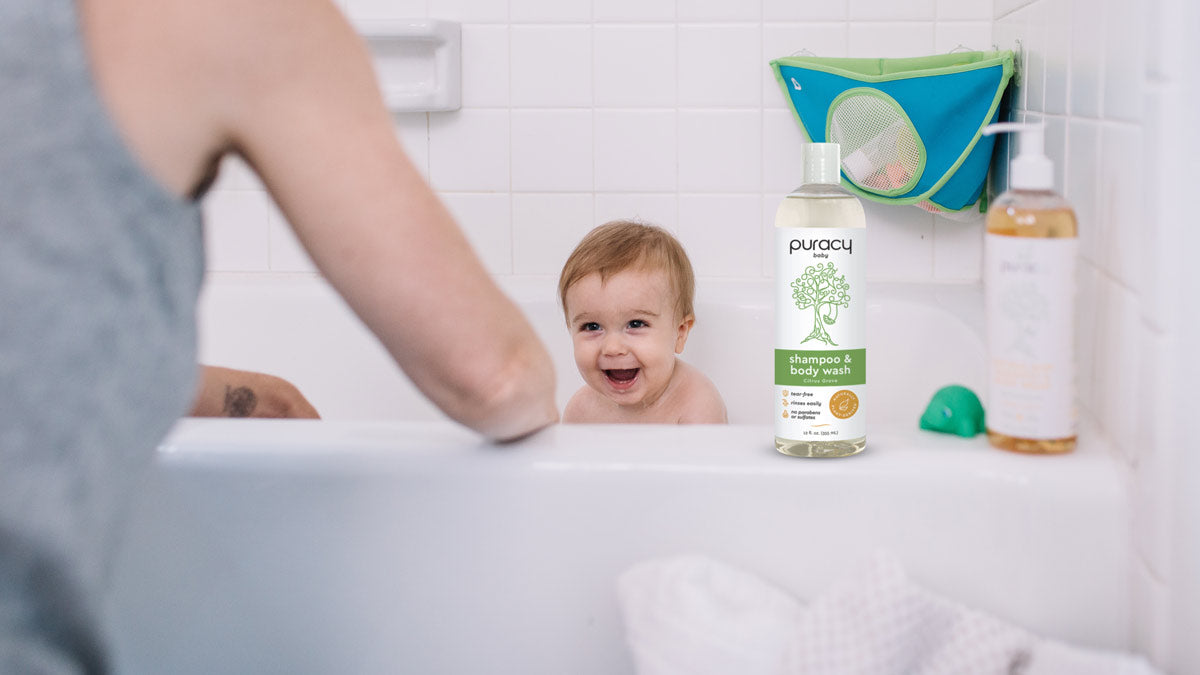Written by Stacey Kelleher and Brandi Brucks.
What parent can’t wait to say “goodbye” to diapers, but where do you start when it comes to potty training your toddler?
With so many potty training questions out there, we reached out to childcare expert and author, Brandi Brucks, for her insight.
Who Is Brandi Brucks?

Brandi Brucks is a potty training expert and co-owner of Your Village Consulting in Austin, Texas. From lactation to sleep training, nutrition and child development, this wonder team handles all kinds of parenting needs. Discover some of the most common potty training questions below!
When Should You Start Potty Training Your Kids?

Every child develops differently so there isn’t one particular age to start. I’ve trained children as young as 21 months, but that doesn’t mean every child is ready to start at that age. I like to start with children who are at least 2 ½ years old, but my preferred age to train is 2 ¾ years old.
How Do I Get My Toddler to Tell Me When They Need to Go to the Potty?
Until they are able to plan several minutes into the future, children aren’t quite capable of telling you they need to go to the bathroom. You can expect this to happen around age three.
How Do I Handle Messes Outside the Potty?
If you need to quickly wipe up #1 or #2 from non-porous surfaces, your best choice is Puracy Multi-Surface Cleaner. We worked with physicians and PhD chemists to perfect this 99.51% natural, hypoallergenic, and sulfate-free formula.

Accidents are going to happen, so don't panic about messes in underpants, on towels, or even under beds: Puracy Natural Stain Remover is gentle on skin but tough on messes. Its formula harnesses the power of plant-based enzymes and coconut cleansers to eradicate all traces of stains and odors!
Puracy product that helps!
Product
Signs Your Child Is Ready to Be Potty Trained

You’re probably looking forward to changing your very last diaper, but is your child ready? Here are some signs your toddler is ready for potty training:
- They are able to put clothing on and take it off.
- They can walk and are ready to sit down.
- They can imitate your behavior.
- They show signs of independence by saying, “no.”
- They show an interest in potty training (by following you into the bathroom, for example).
- They indicate when they are going or need to go to the bathroom.
My Toddler's Resisting Potty Training and Had an Accident
 This is part of the learning process. Take time to ask yourself why they didn’t want to go: Did I not give them enough time to finish playing before going? Are they not enticed by the reward? Are they tired? Did I use the right words?
This is part of the learning process. Take time to ask yourself why they didn’t want to go: Did I not give them enough time to finish playing before going? Are they not enticed by the reward? Are they tired? Did I use the right words?
This can help you change the process so you won't encounter the same resistance next time.
1. Give Your Child a Choice
 Take note of how long your child went between potty times, so you can encourage them before an accident happens. This 10-minute warning is great, especially when it's paired with a choice: “It’s time to go potty soon. Would you like to bring the car or the train with you when it’s time?” If they answer me, it’s a “toddler agreement” that they’ll go to the bathroom soon.
Take note of how long your child went between potty times, so you can encourage them before an accident happens. This 10-minute warning is great, especially when it's paired with a choice: “It’s time to go potty soon. Would you like to bring the car or the train with you when it’s time?” If they answer me, it’s a “toddler agreement” that they’ll go to the bathroom soon.
If potty time is again met with resistance, remind them that the car gets to come and watch them go potty from the counter or floor. If they keep throwing a fit, then the car doesn’t come at all – and it’s still time to go potty.
If they’re still resisting, I use the “when/then” technique to get them excited about something else: “When you go potty, then we can have a snack outside in the yard! Do you want to bring a ball outside, too? What kind of snack do you want?” I try to be descriptive about how much fun they are going to have. Throwing in a couple of choices for their upcoming "fun time" helps to distract from not wanting to go to the bathroom.
2. Return to the Scene of the Crime

If there’s an accident, I show them what happened after it's been cleaned up. Speak simply and without guilt: “Look, pee pee got on the floor. That’s yucky. Where should the pee pee go?”
Once they tell me that it belongs in the potty, I have them stay in the room with me while I clean up the mess. I’m never mean – but I won’t let the child play until everything is cleaned up.
Stating something like this is often helpful, “This is really yucky! I wish we could be playing right now instead of cleaning. Next time, I know you’ll get all of your pee pee in the potty so we can keep playing!”

We're Only Happy If You're Happy
We're confident you'll love our products, but if you're not satisfied, we'll provide a full refund. We may ask for feedback or a return to help improve our offerings.

